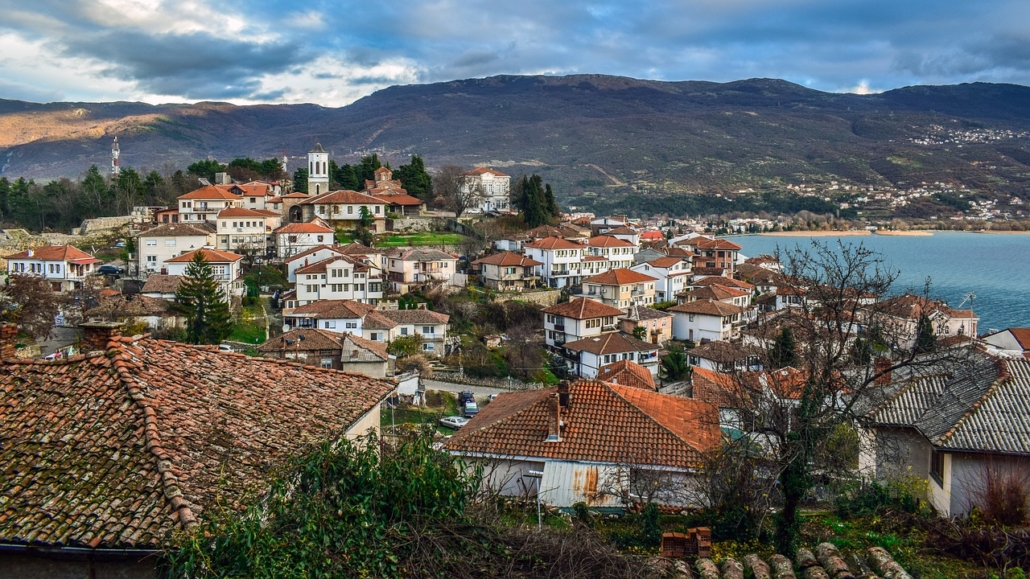
Macedonia’s housing crisis requires swift attention. In 2018, about 21.9% of the country’s population was living below the poverty line. With a population of 2,082,957 in 2018, more than 456,000 people living in Macedonia were experiencing poverty that year. Furthermore, Macedonia saw an unemployment rate of 17.76% in 2019, a rate which is more than double the national average of 7.04%. The collapse of state-run housing development organizations in Macedonia since its independence has led to about 15% of Macedonians living in “illegally constructed buildings.” This means that roughly 320,000 people living in Macedonia lack access to adequate housing.
Invisible Homeless
The unauthorized housing that many people in Macedonia must live in bars thousands from access to important social systems and tools. Since Macedonians require an official home address to obtain a legal ID, the state effectively renders many of them nonexistent. This prevents these people from utilizing such essential services as insurance, social safety nets and immunization services.
Macedonia’s housing crisis is also a health crisis. Without adequate housing, hundreds of thousands of Macedonians are at risk of injury and disease due to hazardous living conditions. In 2018, fewer than a third of Macedonians had thermal insulation systems in their places of residence. Inadequate heating and insulation in buildings have forced thousands of people living in Macedonia to use homemade fires to keep warm since they cannot afford the expensive heating bills otherwise necessary to heat their homes. In the capital city of Skopje, roughly “two-thirds of households use firewood as their primary source of heating,” according to the Financial Times. Without proper air circulation, this can lead to severe chronic health conditions such as heart and lung disease due to inhalation of the hazardous particles which such fires produce.
Habitat for Humanity and Roma SOS
While Macedonia’s housing crisis is a daunting problem, some are doing significant work to improve housing in impoverished Macedonian communities. Despite being an attractive country for foreign investment due to its low tax rates and free economic zones, Macedonia still has one of the lowest foreign investment rates among European countries. This can make it harder for the government to provide solutions.
A Macedonian-based organization called Roma SOS is working to improve the living conditions of those experiencing the most need in Macedonia. The organization is currently working with Habitat for Humanity to provide impoverished Macedonians with zero-interest loans for legalizing and renovating their homes. While Habitat for Humanity provides the funding for these loans, Roma SOS helps residents in navigating the legal process of receiving approval for their loans.
Since 2004, Habitat for Humanity has worked to improve affordable housing for the people of Macedonia, and in 2019 it served 4,245 individuals “through market development.” Habitat for Humanity has further worked to provide individuals in Macedonia with housing that is not only affordable but also energy efficient. Since beginning this project in 2010, it has worked to restructure more than 60 buildings to improve energy efficiency, which has saved Macedonia more than 7,910 MWh of energy usage annually. The loans that Habitat for Humanity provides are essential for giving impoverished people in Macedonia access to better housing. With these loans, Habitat for Humanity has made heating safer and more affordable for more than 1,000 families living in Macedonia.
On the Path to EU Membership
Macedonia’s government also appears to be taking steps towards increased funding for improved housing. Macedonia has recently signed a deal with Greece and is currently on its way to becoming a member of the E.U. By joining the E.U., Macedonia would see an increase in foreign investment and would be able to apply for crisis aid packages to help improve housing in its impoverished communities.
The country’s housing situation may look bleak, but there is significant work occurring to address Macedonia’s housing crisis by improving the country’s economic situation. Several organizations, both outside of Macedonia and within it, are providing poor Macedonian populations access to safe, legal housing. With Macedonia moving towards E.U. membership and its accompanying economic support, there is hope for thousands of people in Macedonia whose living conditions formerly seemed hopeless.
– Marshall Kirk
Photo: Pixabay
The post Tackling Macedonia’s Housing Crisis appeared first on The Borgen Project.
Original Source: borgenproject.org


Akashay Deshraj and Sourabh Gupta (L-R), Founders of Vernacular.ai
Sourabh Gupta and Akshay Deshraj came to Bengaluru in 2016 after graduating from IIT Roorkee. The duo was among the thousands of engineers who flock to the city every year with hopes to become entrepreneurs and start another Ola, Swiggy, or Flipkart.
Not sure of the problem they wanted to solve, they started doing what most potential startup founders do – they attended as many events as possible, kept meeting people and making new connections, and never stopped reading.
In a recent conversation with YourStory, Sourabh said, “By then Reliance Jio was already here, and everyone was talking about the next 500 million internet users.”
In order to explore what these ‘next 500 million internet users’ wanted and the problems they faced, the two friends started visiting villages in and around Bengaluru. In one of their visits to Kanakapura, a small town situated 55 kilometers from Bengaluru, they finally found the problem they had to solve.
Sourabh recalls having met a farmer who had a very particular and long-existing problem.
“I receive SMS on my phone from the bank. I know the message is from the bank because it has numbers, but I cannot understand what the SMS means because it is in English,” the farmer told him.
He (the farmer) had to cycle 10 kilometers to the bank every time he received an SMS to get the bank manager explain to him what the message meant. Most of the other farmers, across villages, faced the same problem.
“This was when we knew that the next generation of internet users are going to be voice-first,” Sourabh says.
After months of research and development, the IIT graduates launched their company Vernacular.ai. Based out of Bengaluru. The startup is transforming customer interaction through its artificial intelligence (AI) based voice assistant – VIVA. The startup empowers locals and equips enterprises to cater to the non-English speaking population of the country.
Vernacular.ai currently serves more than 25 enterprise clients in 16 different languages in the banking, insurance, food and beverage, and hospitality sectors. This includes the likes of Axis Bank, OYO Rooms, and Barbeque Nation, among others. According to the startup, it helps enterprises automate their call centre operations by up to 80 percent.

Image Source: Shutterstock
 Also ReadHow SaaS startup Vernacular.ai is going global as voice AI adoption accelerates amidst COVID-19Bumpy ride
Also ReadHow SaaS startup Vernacular.ai is going global as voice AI adoption accelerates amidst COVID-19Bumpy ride
The journey from being a college student to a startup founder was not an easy one. When Sourabh was still preparing for the IIT-JEE examinations, the likes of Flipkart and Ola were ‘making a scene,’ says the Co-founder and CEO.
“I wanted to start a business of my own. I went to IIT not to become an engineer but because my parents wanted me to,” says Sourabh.
Back in college, Sourabh was the Head of the Entrepreneurship Cell in his final year of engineering. During the events, he met his co-founder Akshay. The duo worked on a couple of projects together as well.
When they came to Bengaluru, not many people took them seriously for their age, Sourabh tells YourStory.
“When we expressed that we wanted to build a B2B business, we were told that enterprises want ‘grey hair’ to sell them something,” Sourabh says.
Additionally, there was a misconception that in order to create a deeptech platform, a startup needed a PhD scholar to understand the nuances of the platform. Being fresh out of college did not help Sourabh and Akshay.
Cracking the deal
Coming to a new city and without a job, the duo borrowed money from their parents for the basics. “At a time when everyone sends money back home, we were asking our parents for financial support,” he adds. And with this, came the incessant questions regarding the progress. “All we were doing was reading!” Sourabh says.
Having incorporated the company in October 2016, Vernacular.ai was finally launched towards the end of 2017. Within the first 35 days of its launch, the startup raised an undisclosed amount as seed funding from Kstart Capital, the seed programme of venture capital firm Kalaari Capital. Recently, in May this year, it further raised $5.1 million in its Series A round. The round was led by Exfinity Ventures and Kalaari Capital. AngelList, IAN Fund, and LetsVenture also participated in the round.
Going forward, Sourabh says, “We will now be scaling exponentially and invest heavily in R&D for Indian and South-Asian markets.”
Want to make your startup journey smooth? YS Education brings a comprehensive Funding Course, where you also get a chance to pitch your business plan to top investors. Click here to know more.
Original Source: yourstory.com



 Also ReadHow SaaS startup Vernacular.ai is going global as voice AI adoption accelerates amidst COVID-19
Also ReadHow SaaS startup Vernacular.ai is going global as voice AI adoption accelerates amidst COVID-19